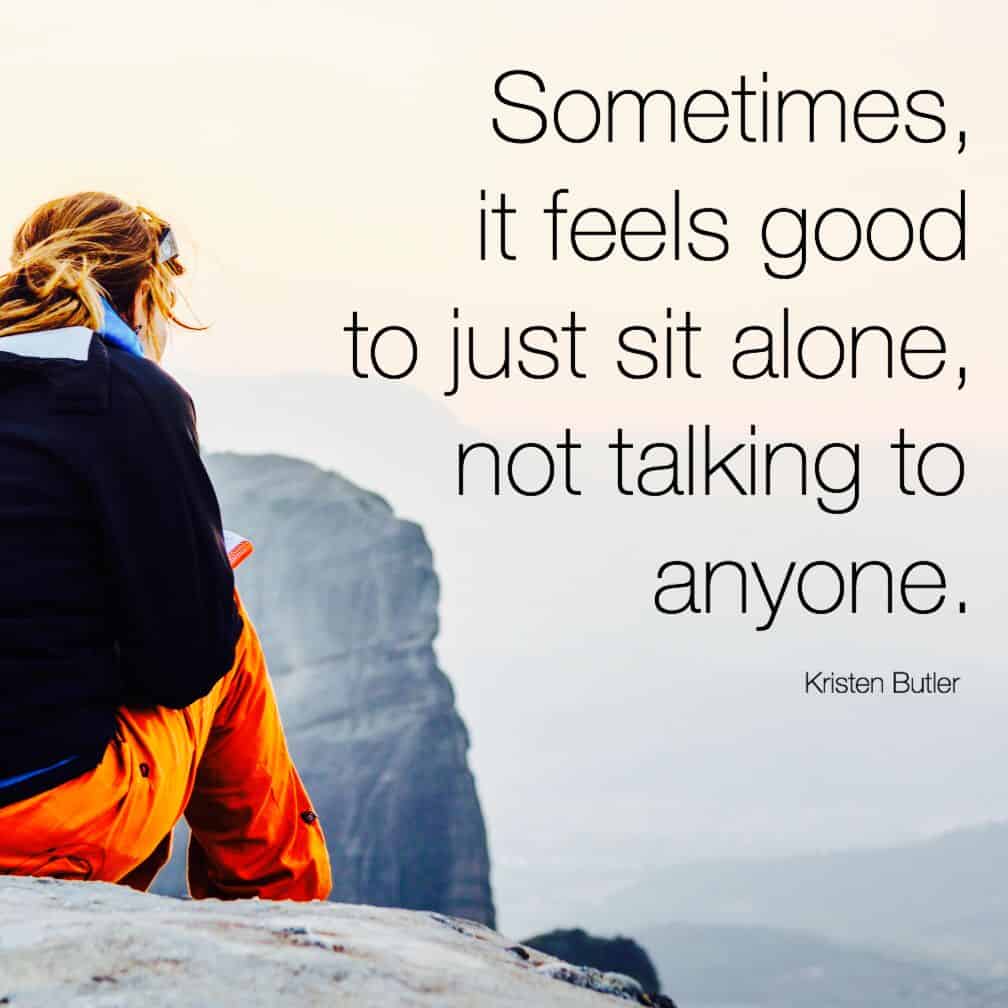You may have heard of the term ’empath’ before, and essentially, it means being in tune with people’s emotions and feelings, so much so that the energy from them can negatively affect the empath. Empaths have high sensitivity and want the best for everyone they meet. Some people feel as though they can open up and tell their entire life story to an empath, probably due to their kind and caring nature.
Empaths often feel misunderstood and disregarded in today’s world, as we must use so much logic and reasoning to make decisions that emotions often get pushed to the wayside. The dreamer, wanderer, drifter, artist, outcast, hippie, etc., doesn’t understand or resonate with the world today, so society automatically deems them a ‘troublemaker’ or ‘too sensitive.’
However, empaths bring significant gifts and lessons in the world. An empath shows us that taking time to connect with someone else emotionally can change a person’s life. Empaths teach us to take time for ourselves and nurture our creative spirits. Empaths also represent those who won’t conform to a cruel world, no matter how tempting or easy this might seem. These types are usually old souls who have come here plenty of times before and have great wisdom to share.
Empaths sometimes suffer from low self-esteem or social anxiety due to the magnitude at which they feel others’ emotions. However, once they accept their gifts and promise to love themselves no matter what others might say, others can benefit from their healing nature.
Empathy helps one to see the world in a more compassionate way, so much so that some empaths claim to talk to angels or spirit guides often.
However, did you know that five types of empathy exist? If you identify as an empath, read on to figure out which of these five skills describes you best.
The 5 Types of Empaths…Which One Are You?
 1. Emotional Empathy
1. Emotional Empathy
This type of empathy is perhaps the most common on the list. Emotional empathy happens when you feel another person’s emotions so deeply that you take them on yourself. In other words, you can easily put yourself in another’s shoes and identify with their struggles and pain. However, many empaths feel overwhelmed by this ability as they can feel the energy of a room as soon as they walk into it.
2. Medical Empathy
If this sounds confusing, think of it this way. When someone you’re close to gets very sick, do you immediately feel worse yourself? If so, you may have medical empathy. Medical empaths take on the ailments and sicknesses of someone else, even if they are miles apart. Empaths naturally take on other people’s energy, especially those they’re close to. If someone they love gets very ill, they may become sick themselves due to how much they care for them. Their loved one’s pain is their pain, too.
On another note, a medical empath may also have the ability to spot an illness within another person simply using intuition.
3. Place Empathy
This empathy, as you would imagine, occurs in different places or locations on the planet. For example, maybe you feel particularly drawn to a certain place overseas and imagine yourself living there happily. Or, maybe when you go to the local mall, you immediately want to leave. Certain places trigger emotions within us, and these types of empaths feel it even more deeply than others. They can feel out a place within moments and figure out if it’s in their best interest to stay there or not.
4. Intellectual Empathy
These types of empaths excel at understanding how people’s minds work. They can easily understand someone’s perspective and offer their own without getting into an argument. They can relate to multiple perspectives and ideas and love keeping company of those who challenge them intellectually.
You love to gain information from as many sources as possible and continue learning in all facets of life.
5. Environmental Empathy
Environmental empaths feel what happens to the Earth on a profound level. When Earth goes through extreme trauma and destruction, these empaths begin to break down and feel very negative emotions. They see the Earth and themselves as one and want to protect the planet and restore it to its natural order.
Environmental empaths have a great relationship with nature, feeling called to it on a soul level. These people would love to spend most of their time in the woods or at a beautiful beach, away from the chaos and haste of the ‘real’ world.
How to Identify if You Are an Empath
Empaths have an uncanny ability to identify how other people are feeling. Do you think you or someone you love might carry this unique gift?
Empaths are compassionate people, but they’re prone to feeling overwhelmed by the burdens of the world. They can sometimes feel empathy for experiencing physical side effects from their feelings of empathy and compassion.
Researchers believe that empaths have neurons in their brain that mirror one another. This gives them the ability to understand people’s emotions by filtering it through their own emotions. They can better adapt their feelings, behavior, and speech to other people to understand their emotions. Empaths are extremely intuitive. They can detect a person’s feelings without prior knowledge.
Here are some ways to identify an empath person in your life.
 Intuitive to other’s emotions
Intuitive to other’s emotions
They can walk into a room and sense tension, fear, or anger. They “know” how people are doing without being told. This can scare some people, but others find it reassuring that empathy can help them get through things.
Need time to be alone
Because empaths feel things so deeply, they need time alone to decompress. They get recharged when they’re by themselves. Being outside is often the most healing for them, whether at the beach, in the mountains, or simply hiking through a forest. Nature is their calm place and where they can totally relax.
Feel things deeply and intensely
Empaths feel other’s burdens. If they hear a sad story on the television, they may feel physically ill from it. They may carry the sadness of what they’ve had all day or all week until they feel normal.
Nurturers
They are caring to a fault. Empaths ask deep questions, trying to understand better how someone is feeling. They’ll follow up with a call or a small gift wanting to help clean your house or run errands for you. They are loyal friends who will stick by you through whatever you’re going through, even to the point of their own exhaustion.
Get overwhelmed by the burdens of the world.
Empaths feel the weight of the world. They can’t let go of the suffering around them. They will help people in their community, whether it’s the homeless, the girl scouts, or a local charity that needs volunteers. And they donate their time and money to causes, always aware they could be doing more.
Need deep communication sharing deeply
These individuals hate small talk. They seek deep meaning and discussions about how you feel and what you’re thinking. They ask good, probing questions that get to the heart of the matter.
Generous
Empaths give of their time, money, and emotional energy. They love to help people and want to fix things so that people don’t need to suffer. They also don’t like to disappoint their friends and family. They’ll go the extra mile to help out a friend. They’re loyal friends, no matter what you’re going through.
The Difference Between an Empath and a Highly Sensitive Person
There is some overlap between an empath and a highly sensitive person, but they are very different individuals.
Empaths
They don’t just notice how people feel. They sense it. It’s a “knowing” without any information. They are so aware of other people’s feelings. They may feel as if they’re experiencing the emotions themselves. It can be difficult to turn off this sensitivity, causing them to feel overwhelmed by others’ anxiousness or stress. It’s as they can absorb someone’s feelings as their own. They make excellent friends, partners, and caregivers. They also
- Need time to be alone to get recharged
- Can be extroverts or introverts
- They pick up emotions from people without trying. It’s an unconscious thing for an empath.
- Empaths can be highly sensitive people, but not always.
- Need understanding from friends and partner
Highly Sensitive People
A highly sensitive person processes information about the world around them. They feel things deeply and notice things that others may not notice. They feel overstimulated because their brains are on hyper-drive all the time. Often, they pick up emotional cues from people and, like an empath, can feel a sense of empathy for others. They notice smells, textures, and noises when other people ignore them. Because of this, highly sensitive people may get distracted easily. So, they feel things emotionally but also in a sensory way too. Being highly sensitive can be genetic. Up to 20% of the population experiences this kind of sensitivity. Highly sensitive people can also.
- Be introverts or extroverts.
- They are also empathic.
- Overlap traits with empaths, and could be two sides of one trait.
Habits for an Empath to Stay Healthy
Learn to say no
Set boundaries for yourself as to what you will do and won’t do. Don’t allow people to walk all over you, getting you to do jobs that no one else will do. Step back and consider where you want to invest your time and talents. If you do this, you’ll be happier and be less stressed out.
Go outside every day.
Find time every day to go outside and enjoy nature. It’s your safe place where you can get refreshed and recharged, whether it’s a quick jog around a lake or a swim in the lake. Nature allows you to feel more peaceful and calm away from people’s feelings or emotions.
Recharge by being alone
Take time for yourself every day. Read a book, take a long bath, or relax on your front porch watching the birds in your yard. Being alone is necessary for an empath since you’re prone to feeling burdened by other’s struggles. Don’t feel guilty about needing alone time. It’s healthy. You’ll be able to do all you need to do when you’re recharged and rested.
Communicate your needs to your partner
Don’t shy away from sharing what you need with your partner. They may not understand if you don’t tell them. Explain your need for space and time alone. Tell them what it’s like to experience the weight of others’ feelings. If they don’t understand or demand that you “get a thicker skin,” then it may be time to end this relationship. You need someone who wants to support you, not pull you down.
Get healing from past trauma.
Empaths feel things very deeply. Some empaths have suffered physical or verbal abuse or had parents who didn’t understand their child was an empath. This can cause verified levels of post-traumatic stress. An empath who has past trauma may need to get help from a counselor to deal with their past traumas for a healthy life. Carrying these past traumas can cause depression, chronic fatigue, and panic attacks.
Pursue faith
Empaths are spiritual people. Many empaths find help from their faith. They feel relieved to get help outside themselves, pursuing God as an anchor for their hearts and minds.
Journal
Journaling is a great way for an empath’s emotional health. When you write down your feelings and worries, it makes you feel better. You feel as if you’re unloaded your burdens on paper so you can separate yourself from your feelings.
 Loving an Empath
Loving an Empath
So, you’re pretty sure your partner is an empath. You’re a lucky person to have such a loving, loyal partner in your life, but you must understand how to love your empath partner. Here are some suggestions for you to love them well.
1. Express your feelings with them
When you’re upset or anxious, share your feelings with your partner. They have probably picked up on your emotions, anyway. They aren’t able to read your mind, of course, so telling them what’s going on in your mind is important for them. Empaths are great listeners. But they are prone to overthinking things. So you can help your partner worry less about you if you are quick to share with them what’s going on in your heart and mind.
2. Don’t lie to your partner
Never tell big or little lies to empath partner. If they sense your lying, it will be very hurtful to them. Empaths hate lying and deceitfulness. Be honest with them, knowing that they will be able to handle whatever you share with them. Don’t run the risk of ruining a wonderful relationship by telling even a white lie. It’s not worth it.
3. Be a good listener
One of the most important things an empath needs in a relationship is someone who will listen to them. They have strong feelings, so they need to unload their thoughts to a trusting partner who understands them. Try not to solve all their problems as they share, but listen. If they ask for your input, be sure to reassure them of your love before giving them advice. Empaths try to please people so. You want them to be assured of your acceptance before you give them advice.
4. They may not be able to explain how they feel
Your partner has a lot of feelings and emotions spinning in their heart and mind. They may not be able to explain why they feel so sad or anxious. Give them space and time to talk out what they’re really feeling. Have some good questions to help them understand what’s going on inside of them.
5. Be prepared for emotional expression
Empaths are emotional and share emotionally. Allow your partner to vent their emotions without fear of judgment from you. You may find this challenging, especially if your partner is carrying the burdens of other people’s feelings. Don’t tell them to let go of it or forget about how another person feels. They can’t do this. Instead, Comfort them when they’re feeling emotionally overwhelmed and listen patiently as they vent their own emotions.
6. Don’t try to change your empath partner
You mustn’t try to change your partner. You may think that if they just stopped worrying about other people, they would feel better. This is impossible for an empath. It’s like telling a fish not to swim. This won’t be helpful, and your partner will not feel loved or understood by you.
7. Decide how much social time you’ll both have
You may like to hang out with friends, but your impact partner may not be able to handle too much time socializing in groups. The two of you must sit down and discuss how you will socialize as a couple. Ways to compromise with your partner. Schedule times for your empath partner to be alone to recharge.
8. Determined space in the house
Empaths need space. They can feel smothered if they have too much together time. Ask what type of space your partner needs to set up the best arrangements for them. Do they need a private room where they can sit and read and recharge? Should your empath partner have a private bathroom? All these things are important for you and your partner to discuss.
9. Don’t take things personally
Your partner may not always be easy to understand. They may be more preoccupied with other people’s troubles rather than you. Please don’t take it seriously. Be there for your empath partner, love, and care for them. Don’t react to their comments or emotions, but support them. Push back on their wrong thinking when appropriate, but overall remember they chose you as their partner. You are an important part of their life, even if they don’t always act like it.
10. Be sure to have fun
Empaths are often intense people. You must help your empath partner learn to play. Be playful with them and help them laugh. Having fun will deepen your relationship and make them feel especially loved by you.
 Final Thoughts About Understanding an Empath
Final Thoughts About Understanding an Empath
Do you think you might be an empath? Or do you think your partner might have these traits? It’s essential to know if you are an empath–and what type you are. Be sure to treat yourself with kindness and observe the self-care measures that you need to continue to thrive in a world that could become overwhelming to you.










